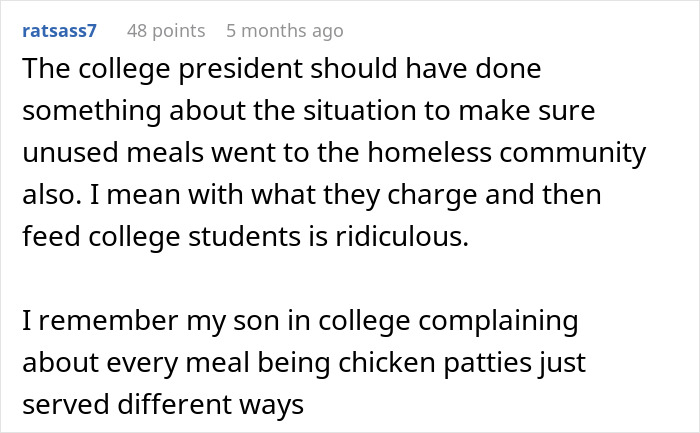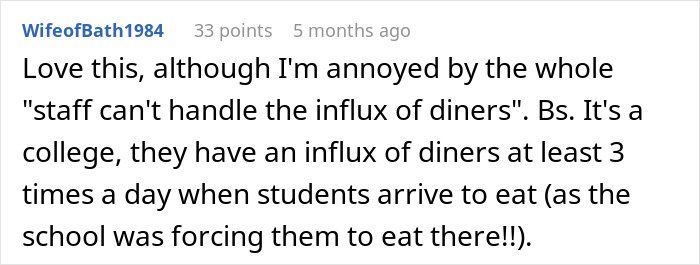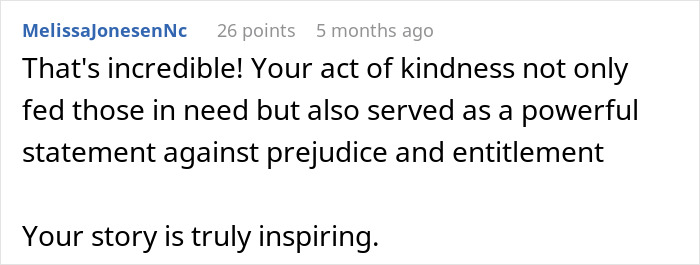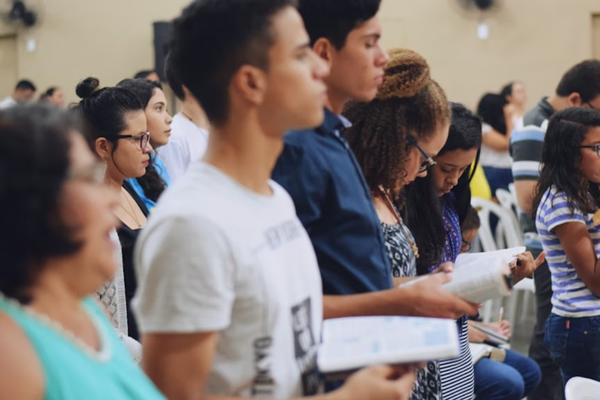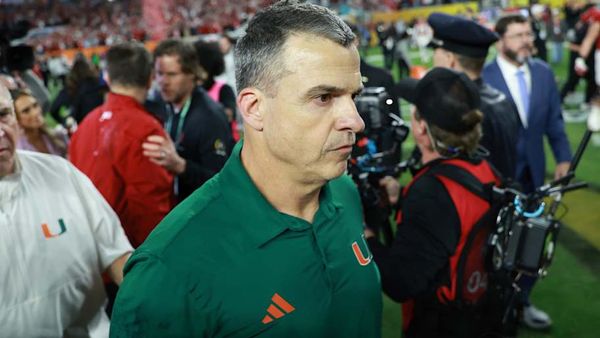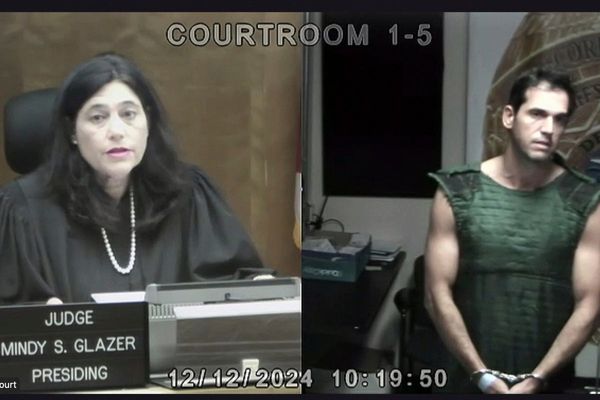Food waste on campuses is a huge problem. The National Resource Defense Council (NRDC) reported in 2022 that they produce 22 million pounds of food waste every year. Most often, there’s just too much food, so colleges and universities are coming up with programs to reduce the amount of waste.
The same thing was happening at this person’s university, but he came up with a plan to use his uneaten meals for a good cause. The user u/RotomRoomba shared a story about how he tricked the system at a fancy university to get meals for the underprivileged. Read on to find out how his plan unfolded and how the faculty members and fellow students reacted when they saw over 120 people in the university dining hall.
Bored Panda reached out to the author of this story, Kyle, and he was kind enough to answer our questions. Read our interview with him below!
College dining halls prepare huge amounts of food, and sometimes, there can be lots of leftovers
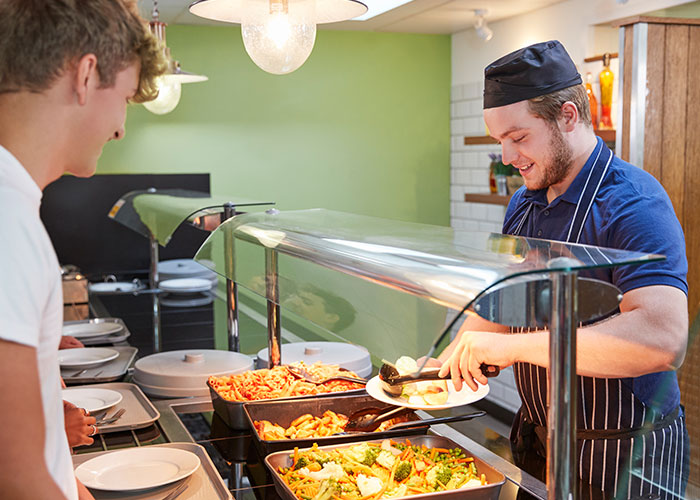
Image credits: monkeybusiness / envanto (not the actual photo)
This one student came up with an idea of how to put his meal plan leftovers to good use
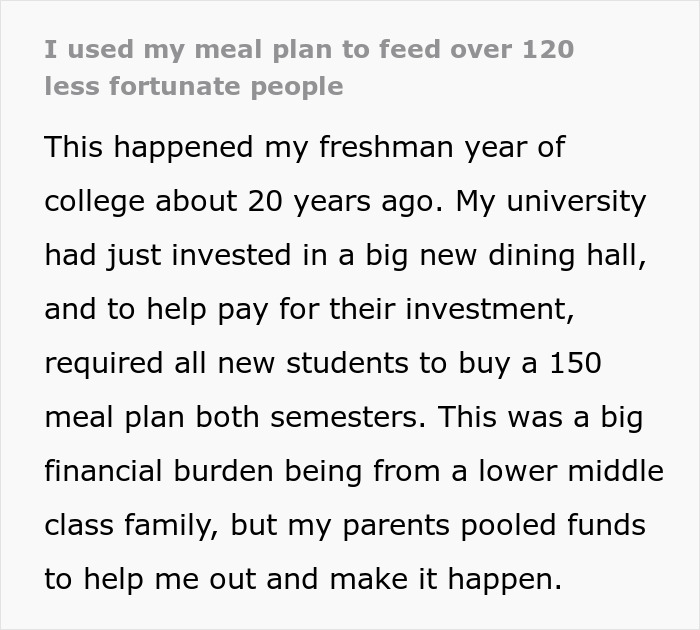
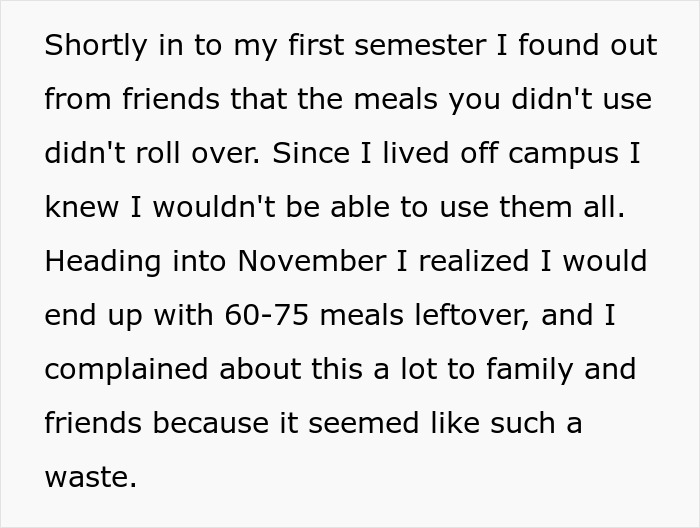
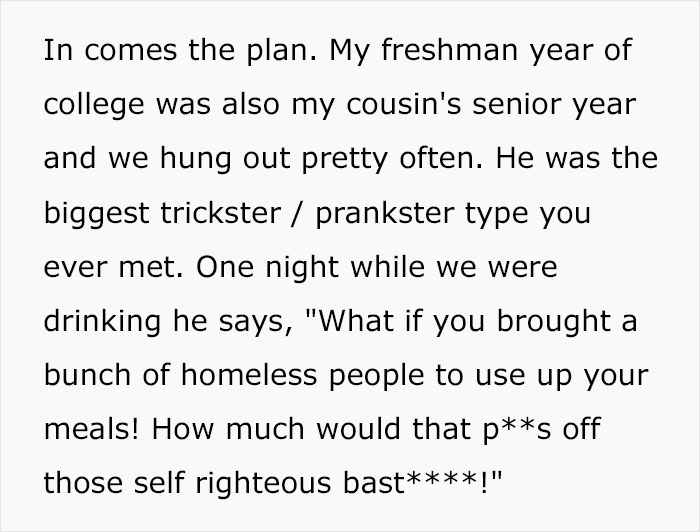
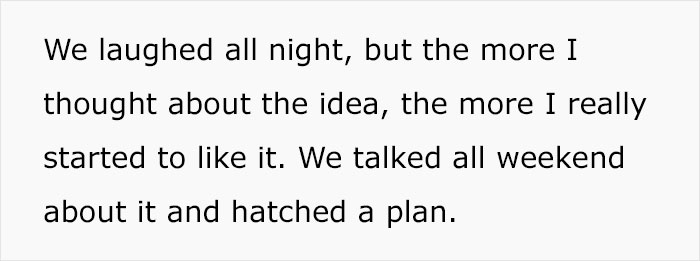
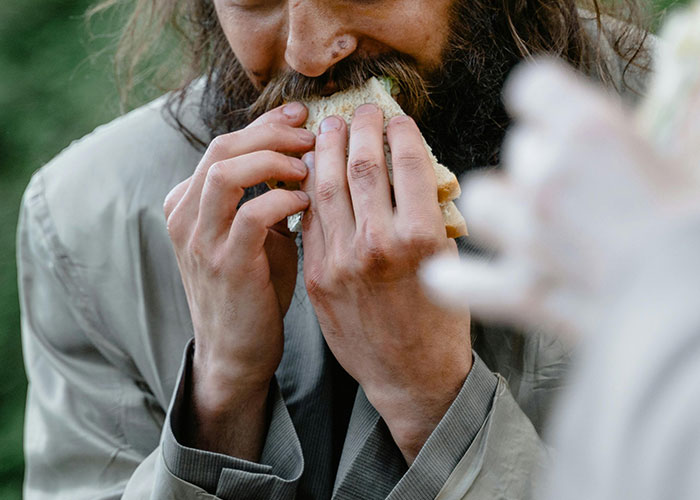
Image credits: MART PRODUCTION / pexels (not the actual photo)
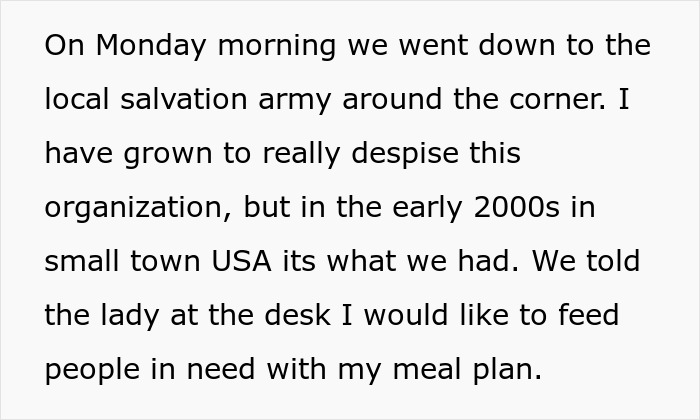
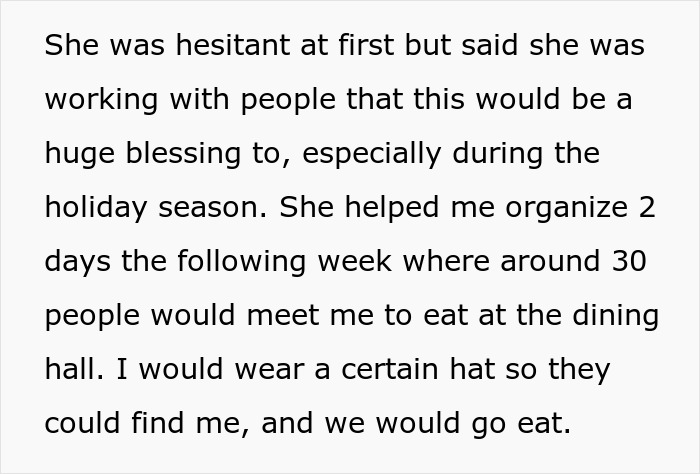
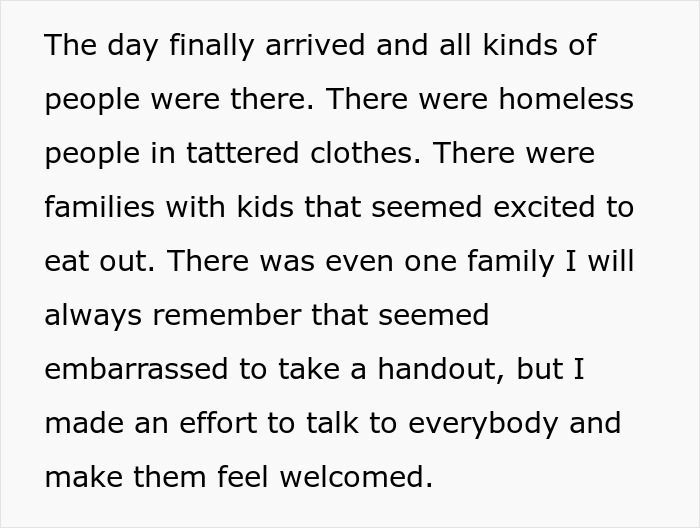
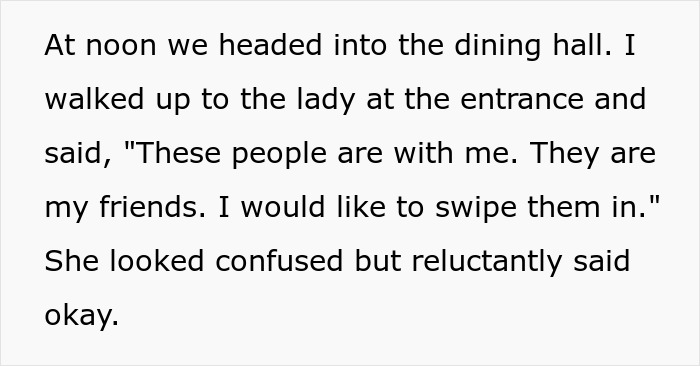
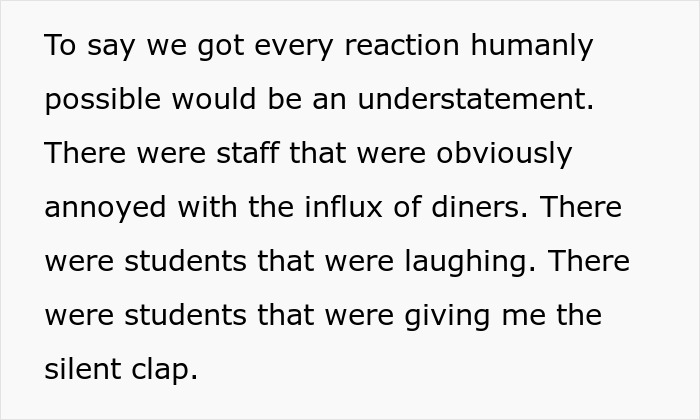
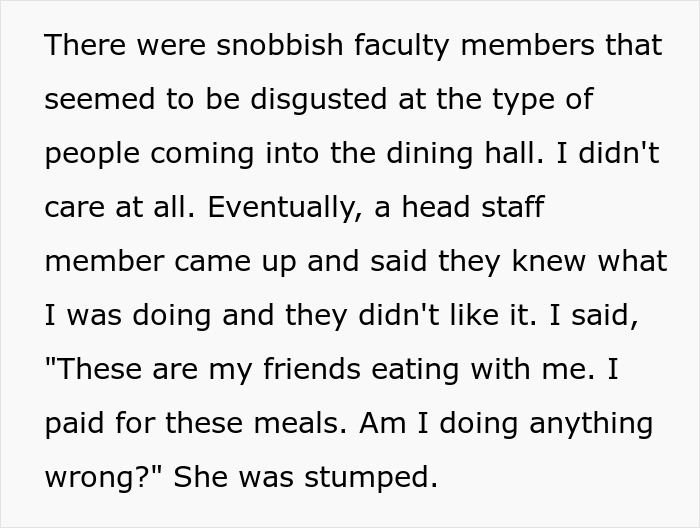
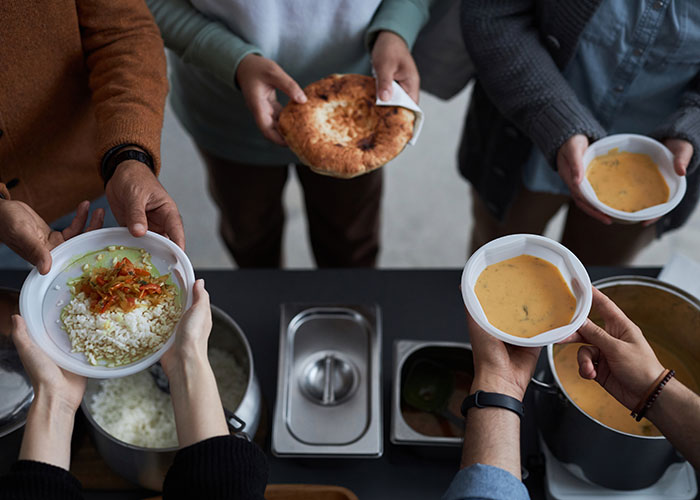
Image credits: seventyfourimages / envanto (not the actual photo)
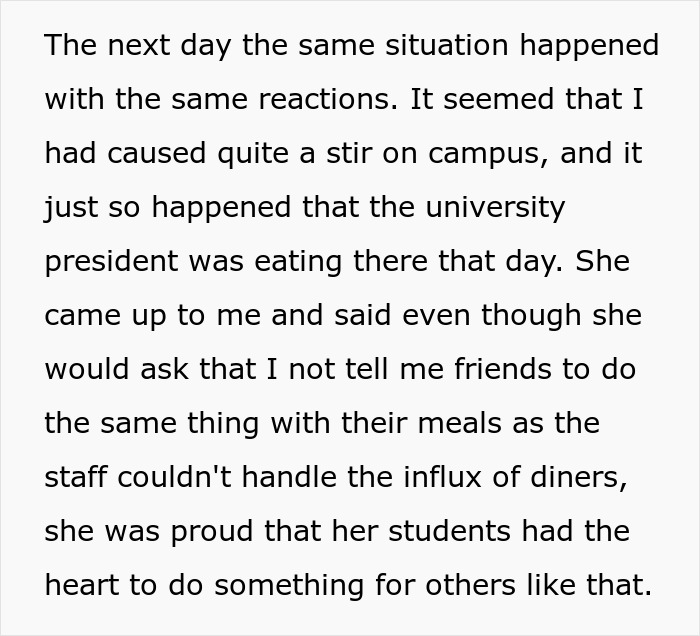
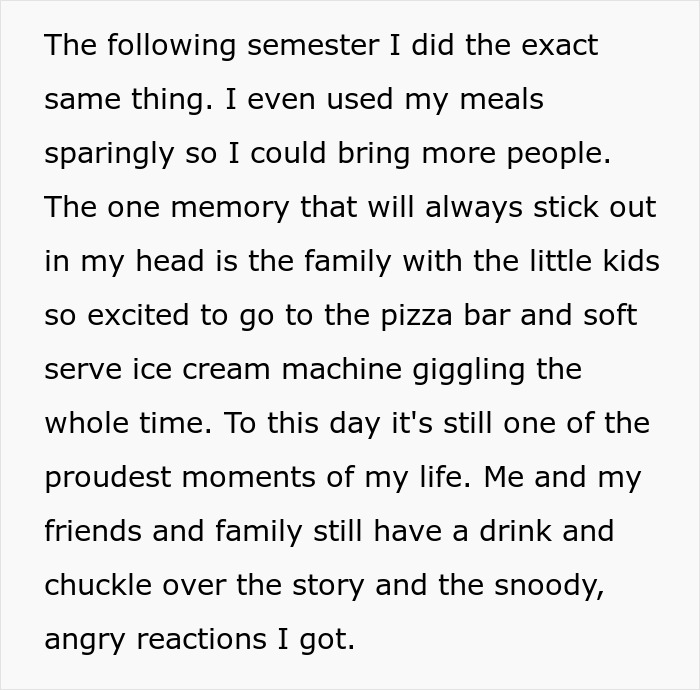
Image source: RotomRoomba
The OP told Bored Panda that we all should stick together and help each other out more often

Image credits: Henrique Felix / unspalsh (not the actual photo)
The student who shared this story, or rather, ex-student, because the whole thing took place in the 2000s, is u/RotomRoomba, or Kyle. We had a short chat with him, and he provided some details about the story itself and why he decided to share it.
Kyle says his goal wasn’t to come across as some sort of saint. “It just has always been one of my favorite stories, and it fit perfectly into the Malicious Compliance subreddit,” the Redditor shares. “I think we could all use a little more of sticking it to the man and a lot more of looking out for each other.”
We asked Kyle if there were any other noticeable reactions from fellow students or faculty members. “I do remember one teacher not mentioned saying he thought what I did was awesome,” he recounts. “Most students laughingly approved and liked the idea of getting back at a dumb rule made in order to leech money.”
The Redditor also mentioned in his post how he tried his best to make the new diners welcome. We were curious to know what exactly he did to ensure they felt as comfortable as possible.
“I just started introducing myself to each person [and] group that came up. I had a little small talk about life, work, family, etc. with them and then explained how the dining hall worked,” the Redditor explains.
This isn’t the only piece of charitable work Kyle has done in his life. The Redditor also used to work as a manager at a fine-dining restaurant and tried to feed as many homeless and needy people as possible. “Probably would have gotten me in a little trouble with ownership if I ever got caught,” he chuckles now.
“My idea on the issue has always been to help out when you can. In a society that is becoming increasingly more individualistic, it’s nice when we stick together and help each other out,” Kyle tells us his philosophy.
University and college campuses still face huge food waste problems
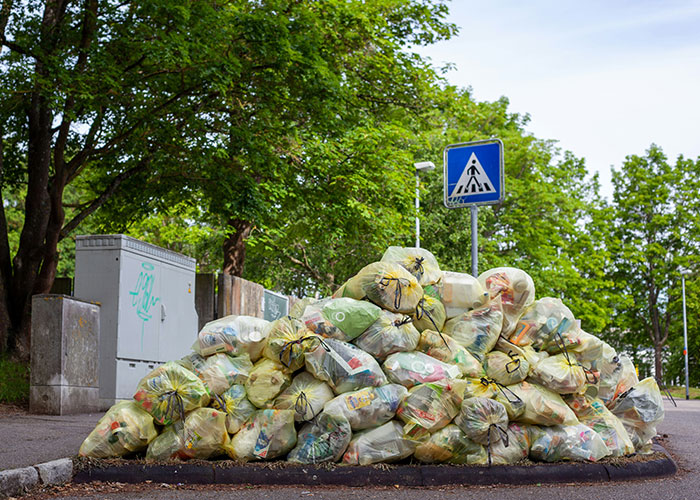
Image credits: Jas Min / unspalsh (not the actual photo)
Although Kyle’s story took place around 2005/2006, higher education institutions in the U.S. are still battling the issue of wastage. As mentioned at the beginning of the article, campuses throw out massive amounts of uneaten food.
One of the biggest reasons for this is that dining halls operate on an all-you-can-eat model. Georgiana Prevost, Food Recovery and Food Pantry ambassador from the UC Berkeley Basic Needs Center, told Stone Pier Press that supply exceeds demand.
“Dining halls and on-campus eateries have to feed massive amounts of people quickly. This means bulk preparation as well as over-preparation of food in anticipation, rather than in reaction to, the number of students coming to eat on any given day.”
Many universities are trying to tackle this problem by addressing student food insecurity at the same time. Zot Bites, for example, is an app for the University of California, Irvine students. Those who register can get text messages when food is available after some catered events.
Middlebury College has a composting program. They mix food waste in with grass, wood chips, and horse manure from the Morgan Horse Farm in Weybridge. After it decomposes for a few months and gets sifted, it ends up back at the college on the flower beds and athletic fields.
And these two institutions aren’t the only ones taking action. Many other universities and colleges have similar initiatives and programs. Some divert the uneaten food to food banks, and others opt to personalize the students’ dining experience by removing serving trays and allowing them to only take what they want.
Netizens and the OP gushed about his success in the comments
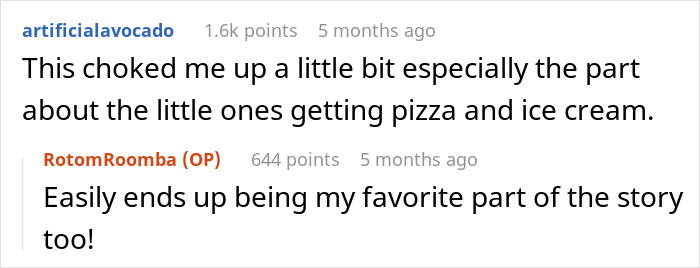
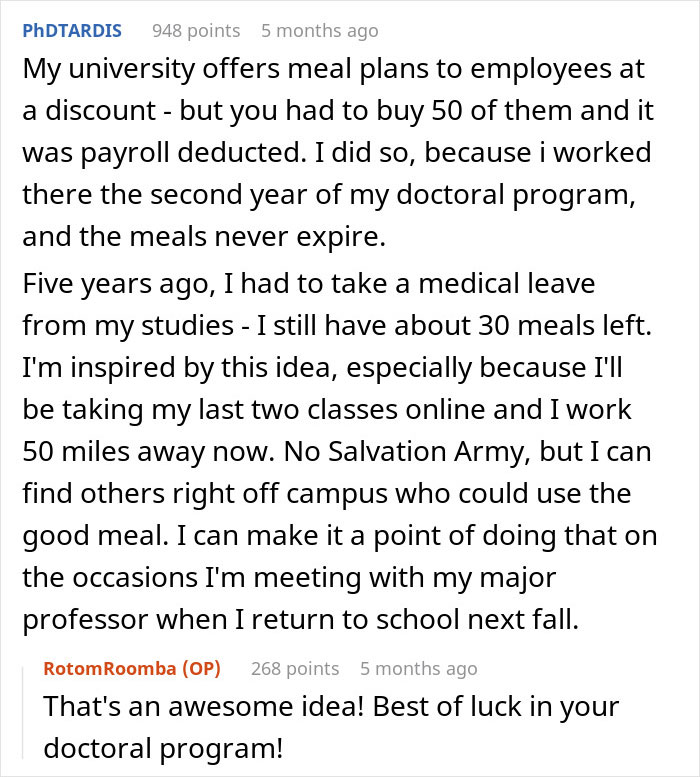
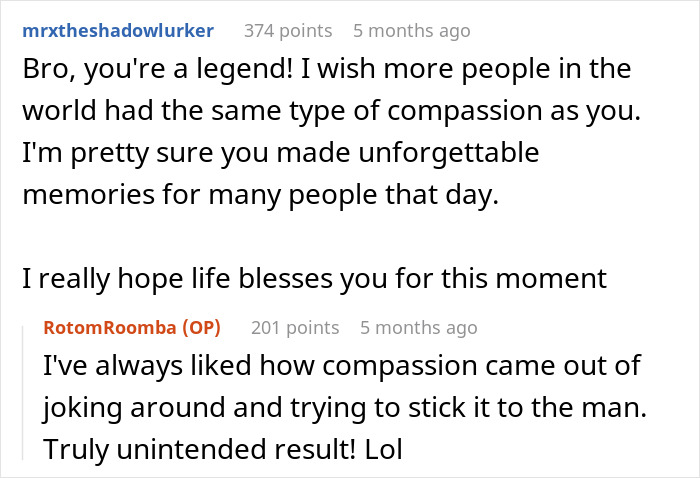
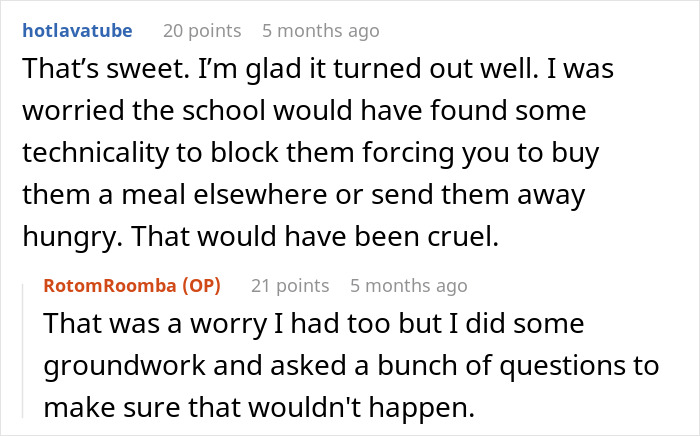
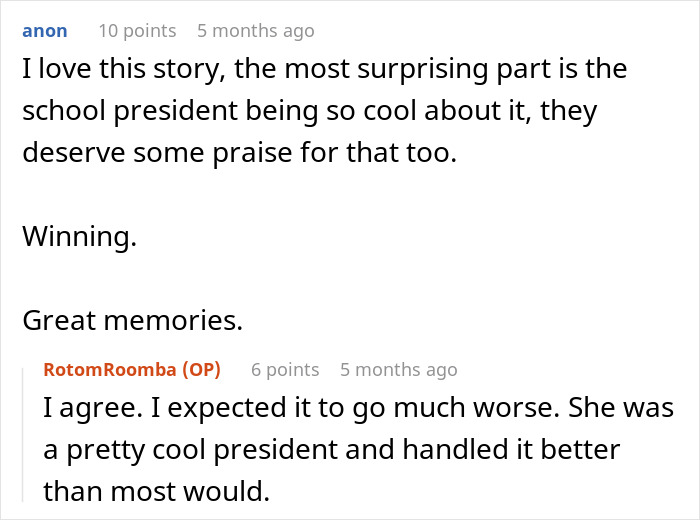
The rest of the reactions were also positive





